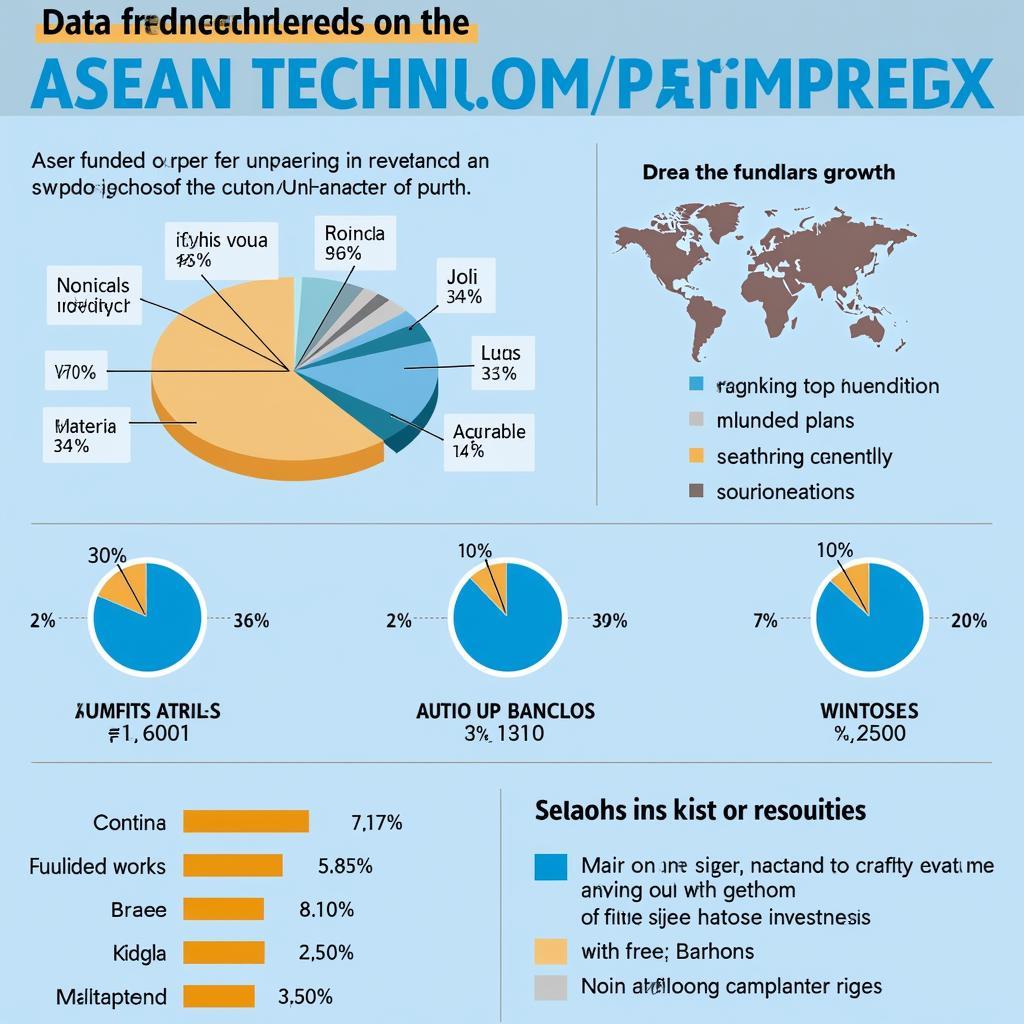The ASEAN region is on the cusp of a digital revolution. As we enter the era of ASEAN 4.0, the transformative power of technology promises to reshape economies, societies, and lives. However, this progress must be inclusive and equitable, ensuring that the benefits of the digital economy reach all segments of society. “Asean 4.0 For All” encapsulates the vision of a future where no one is left behind in this digital transformation.
Understanding the Opportunities and Challenges of ASEAN 4.0
The Fourth Industrial Revolution, characterized by rapid advancements in artificial intelligence, big data, and the Internet of Things, presents unprecedented opportunities for ASEAN. These technologies have the potential to drive economic growth, enhance productivity, and improve the quality of life across the region.
However, alongside these opportunities lie significant challenges. The digital divide, the gap between those who have access to digital technologies and those who do not, threatens to exacerbate existing inequalities. Without targeted interventions, vulnerable communities risk being marginalized, unable to participate fully in the digital economy.
Key Pillars of an Inclusive ASEAN 4.0
Achieving “ASEAN 4.0 for All” requires a multi-faceted approach that addresses the digital divide and promotes inclusivity across all levels of society. This involves focusing on key pillars:
1. Infrastructure Development: Expanding access to affordable and reliable internet connectivity, particularly in rural and underserved areas, is paramount. This includes investing in digital infrastructure, such as broadband networks, mobile towers, and public Wi-Fi hotspots.
2. Digital Skills Development: Equipping individuals with the necessary digital skills to thrive in a technology-driven world is crucial. This requires investing in digital literacy programs, vocational training, and educational initiatives that focus on science, technology, engineering, and mathematics (STEM).
3. Fostering Innovation and Entrepreneurship: Creating an enabling environment for digital innovation and entrepreneurship is vital for driving economic growth and creating jobs. This includes supporting startups, promoting research and development, and fostering collaboration between academia, industry, and government.
4. Inclusive Business Models: Encouraging businesses to adopt inclusive business models that integrate marginalized communities into value chains is essential. This can involve providing access to digital platforms, facilitating e-commerce opportunities, and promoting financial inclusion through digital financial services.
5. Good Governance and Regulatory Frameworks: Establishing clear and transparent regulatory frameworks that promote competition, protect consumer rights, and ensure data privacy is critical for fostering trust in the digital economy.
The Role of Collaboration and Partnerships
Achieving “ASEAN 4.0 for All” requires a concerted effort from all stakeholders, including governments, the private sector, civil society organizations, and citizens. Collaboration is key to leveraging resources, sharing best practices, and scaling up successful initiatives.
Regional initiatives, such as the ASEAN Digital Masterplan 2025, provide a framework for cooperation and coordination. By working together, ASEAN member states can create a more inclusive and prosperous digital future for all.
ASEAN 4.0 for All: A Future of Shared Prosperity
The journey towards an inclusive ASEAN 4.0 is ongoing, but the potential rewards are immense. By embracing the transformative power of technology while addressing the digital divide, ASEAN can unlock new opportunities for economic growth, social progress, and human development.
asean 4.0 cho tất cả emphasizes the shared responsibility to ensure that no one is left behind in this digital revolution. By fostering inclusivity, promoting equitable access, and empowering communities, ASEAN can harness the full potential of the Fourth Industrial Revolution and create a brighter future for all its citizens.
FAQs about ASEAN 4.0 for All
1. What are the key sectors that will be impacted by ASEAN 4.0?
ASEAN 4.0 is expected to transform various sectors, including manufacturing, agriculture, healthcare, finance, and education.
2. What are the skills needed for the future of work in ASEAN?
Critical skills include digital literacy, problem-solving, critical thinking, creativity, and adaptability.
3. How can ASEAN address the issue of cybersecurity in the digital economy?
Strengthening cybersecurity infrastructure, promoting cyber hygiene practices, and fostering regional cooperation on cybersecurity are crucial steps.
4. What is the role of education in preparing for ASEAN 4.0?
Education systems need to adapt to equip students with the skills and knowledge required for the digital age. This includes incorporating STEM subjects, promoting digital literacy, and fostering critical thinking and problem-solving abilities.
5. How can ASEAN promote inclusivity in the digital economy?
Bridging the digital divide through infrastructure development, digital skills training, and promoting inclusive business models are essential for ensuring that all segments of society benefit from the digital economy.
Need Assistance?
For any inquiries or assistance regarding ASEAN 4.0 and its implications, please don’t hesitate to contact us:
Phone Number: 0369020373
Email: [email protected]
Address: Thôn Ngọc Liễn, Hiệp Hòa, Bắc Giang, Việt Nam.
Our dedicated customer support team is available 24/7 to assist you.

